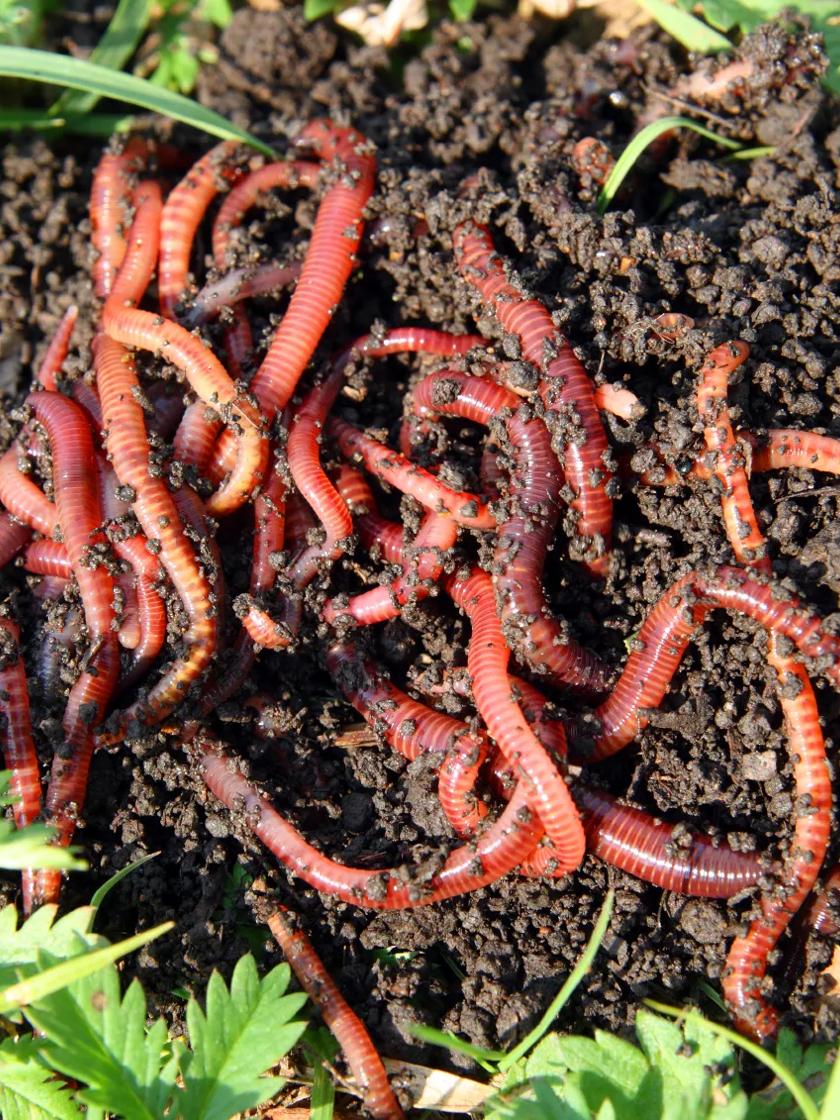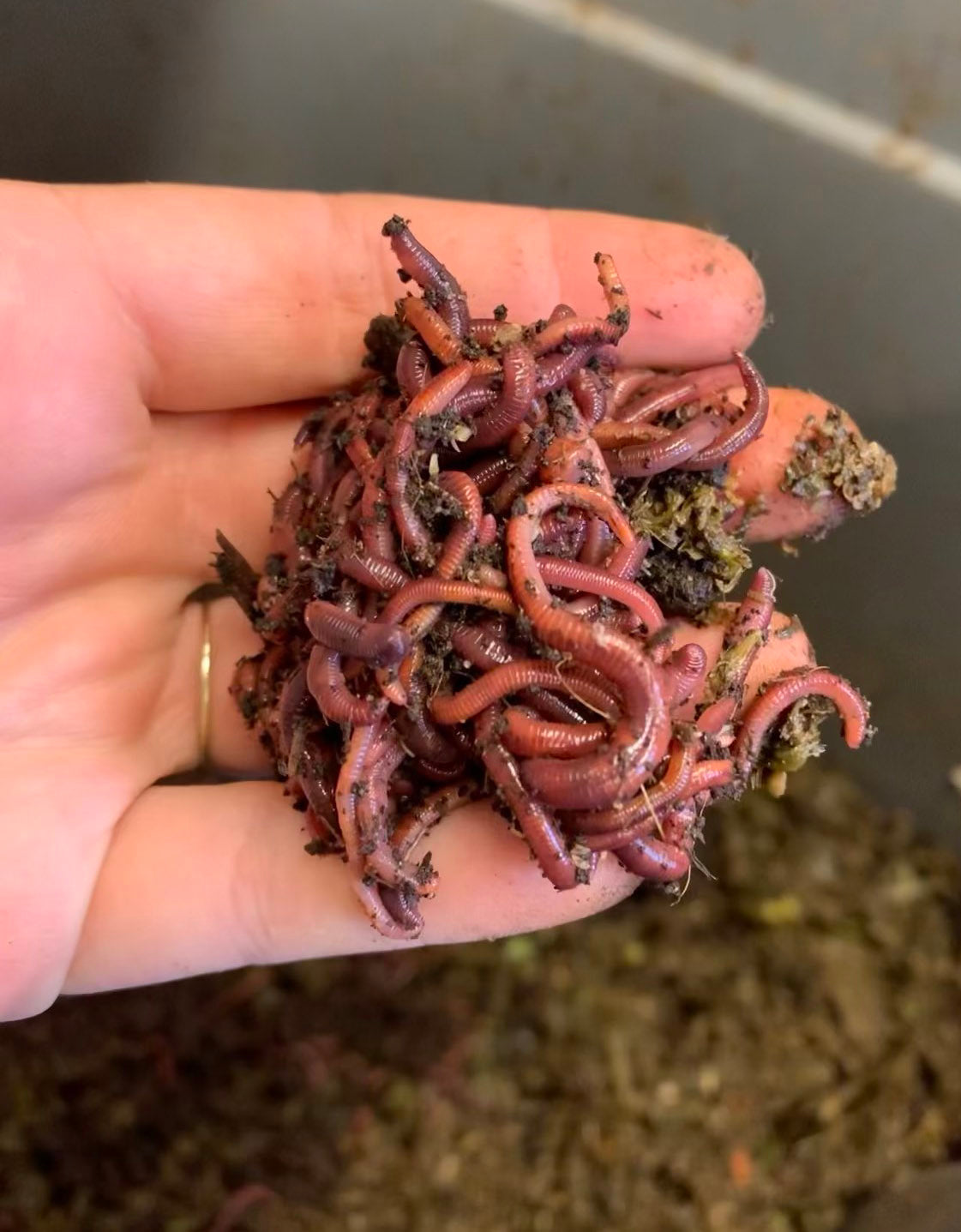Enhance Your Lawn Care Routine with Top-Quality Lake Hickory Bait Products
Enhance Your Lawn Care Routine with Top-Quality Lake Hickory Bait Products
Blog Article
Open the Secrets of Red Wigglers: Your Guide to Composting Success
The combination of red wigglers right into composting methods presents a significant opportunity for enhancing dirt health and advertising sustainability. Understanding their demands and actions is vital for maximizing their possibility, from setting up an appropriate worm container to feeding them the appropriate materials.

What Are Red Wigglers?
(Red Wiggler Express)Red wigglers, medically called Eisenia fetida, are a species of earthworm mostly used in composting due to their exceptional capacity to break down organic matter effectively. These worms are characterized by their reddish-brown pigmentation and a segmented body, usually measuring in between 3 to 4 inches in size. Unlike other earthworm species, red wigglers grow in rich, natural atmospheres, making them suitable for vermicomposting systems.
Native to North America, they are frequently discovered in decaying fallen leaves and compost heap, where they play an important function in nutrient recycling. Their adjustment to residing in a damp, cardio environment enables them to consume huge amounts of natural waste, damaging it down right into nutrient-rich castings that boost soil health and wellness.
Red wigglers recreate swiftly, with a single worm capable of generating several cocoons each week, each including several hatchlings. Comprehending the biology and actions of red wigglers is vital for optimizing their possibility in composting applications.
Advantages of Using Red Wigglers
Taking advantage of the power of red wigglers in composting uses numerous advantages that enhance soil wellness and advertise lasting waste monitoring. These exceptional organisms effectively break down raw material, transforming kitchen area scraps and yard waste right into nutrient-rich vermicompost. This completed product is exceptionally beneficial for plant growth, as it boosts dirt structure, enhances moisture retention, and boosts nutrient schedule.

(Red Wiggler Express)Furthermore, the existence of red wigglers in your composting system can increase the composting process, creating top quality garden compost in a fraction of the moment compared to standard techniques. The castings generated by these worms are also including valuable microbes that further improve the soil ecosystem.
Establishing Up Your Worm Container
Developing an efficient worm bin is a simple process that can considerably enhance your composting efforts. The initial step is choosing a suitable container. Worm containers can be made from plastic storage containers, wooden boxes, or commercially available worm containers. Make sure the bin has ample drainage and air flow holes to preserve ideal wetness levels and air flow.
Next, prepare the bedding material, which acts as the worms' environment. A mix of shredded paper, cardboard, and coconut coir works well, offering a comfy setting for the worms. Goal for a bedding deepness of regarding 4-6 inches. Moisten the bed linen lightly, guaranteeing it appears like a wet sponge without excess water merging near the bottom.

Feeding Your Red Wigglers
To guarantee the wellness and performance of your red wigglers, it is necessary to offer them with a well balanced diet that meets their nutritional requirements. Red wigglers Red Wiggler Express grow on a diverse range of natural materials, which not just supply needed nutrients however also promote reliable composting.
Beginning by integrating cooking area scraps such as veggie peels, fruit cores, and coffee grounds. Stay clear of citrus fruits, onions, and garlic, as these can be damaging to worm health and wellness. Furthermore, introduce shredded paper, cardboard, and dry fallen leaves to produce a well-aerated environment.
Feeding regularity need to be checked; usually, worms can consume half their body weight in food weekly. It is important to avoid overfeeding, as excess food can cause undesirable smells and draw in parasites. An excellent technique is to include food in percentages, permitting worms to process it prior to presenting much more.
Keeping moisture levels is additionally vital; the bed linen needs to perspire however not soaked. Be certain to consistently check the temperature and pH levels of the bin to make sure an optimum environment for your red wigglers, ultimately enhancing their composting effectiveness.
Harvesting and Using Garden Compost
A successful composting procedure with red wigglers finishes in the abundant, dark compost referred to as vermicompost, which can significantly enhance dirt wellness and plant growth. Harvesting this nutrient-dense material typically takes place every 3 to six months, depending on the dimension of your system and the quantity of raw material being refined.
To gather, gently different the garden compost from the worms and any type of undecomposed materials. One reliable technique involves relocating the components of the bin away and adding fresh bedding and food to the void, urging the worms to move. After a few days, the garden compost can be gathered from the opposite side.
It is important to make use of vermicompost correctly to optimize its advantages. By integrating vermicompost right into your gardening program, you not just recycle organic waste yet also produce a growing community that sustains lasting gardening methods.
Verdict
In recap, red wigglers offer as exceptional allies in composting efforts, transforming natural waste right into nutrient-rich vermicompost. By recognizing the optimum problems for their environment, feeding demands, and garden compost harvesting methods, gardeners can enhance soil health and advertise plant vigor.
Report this page